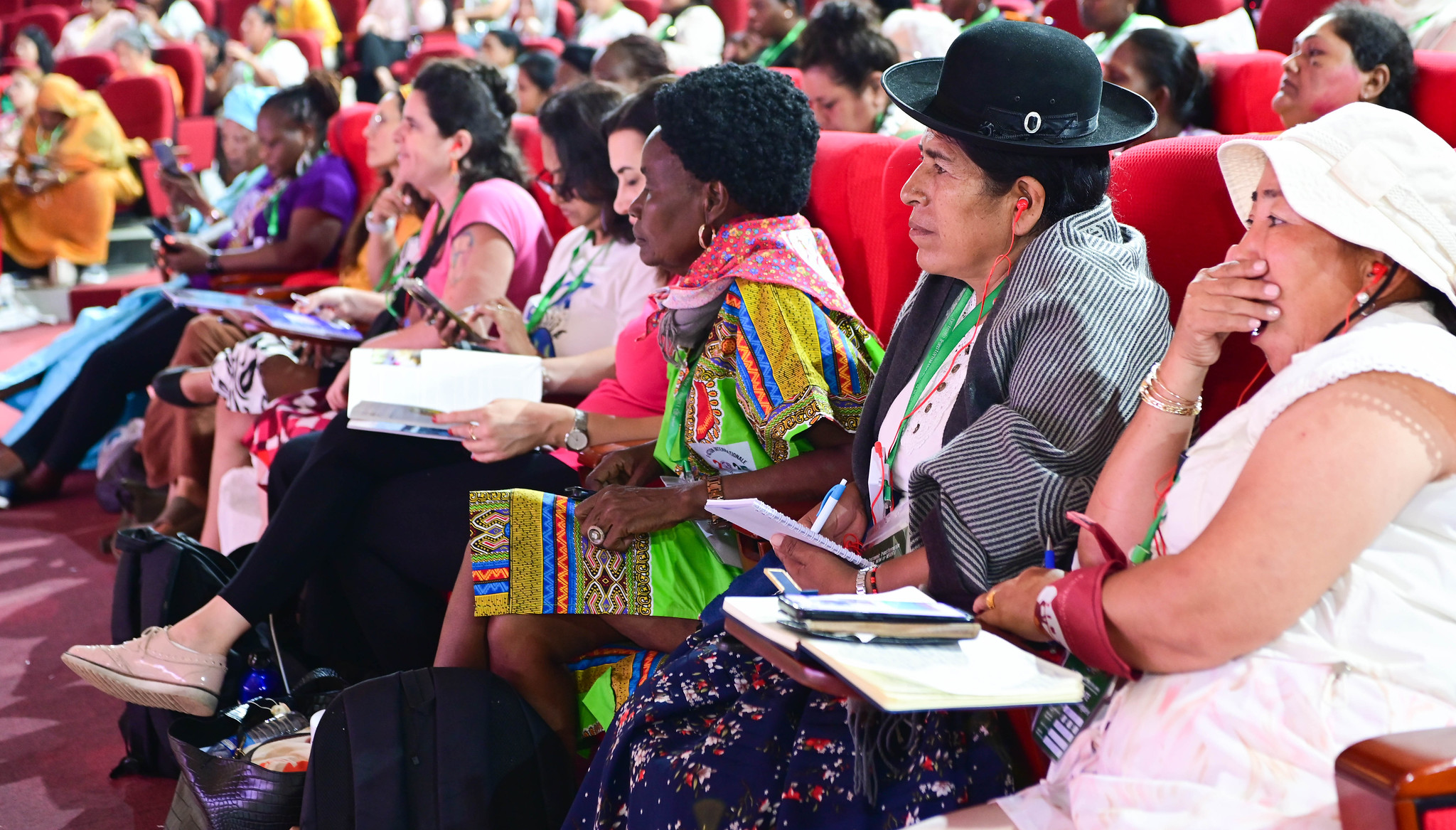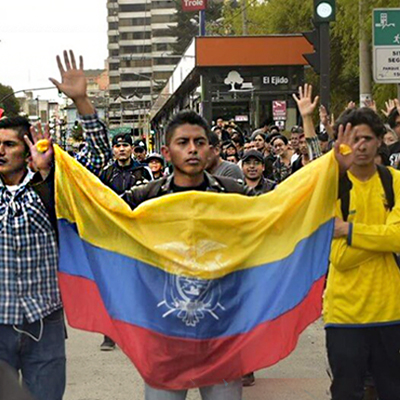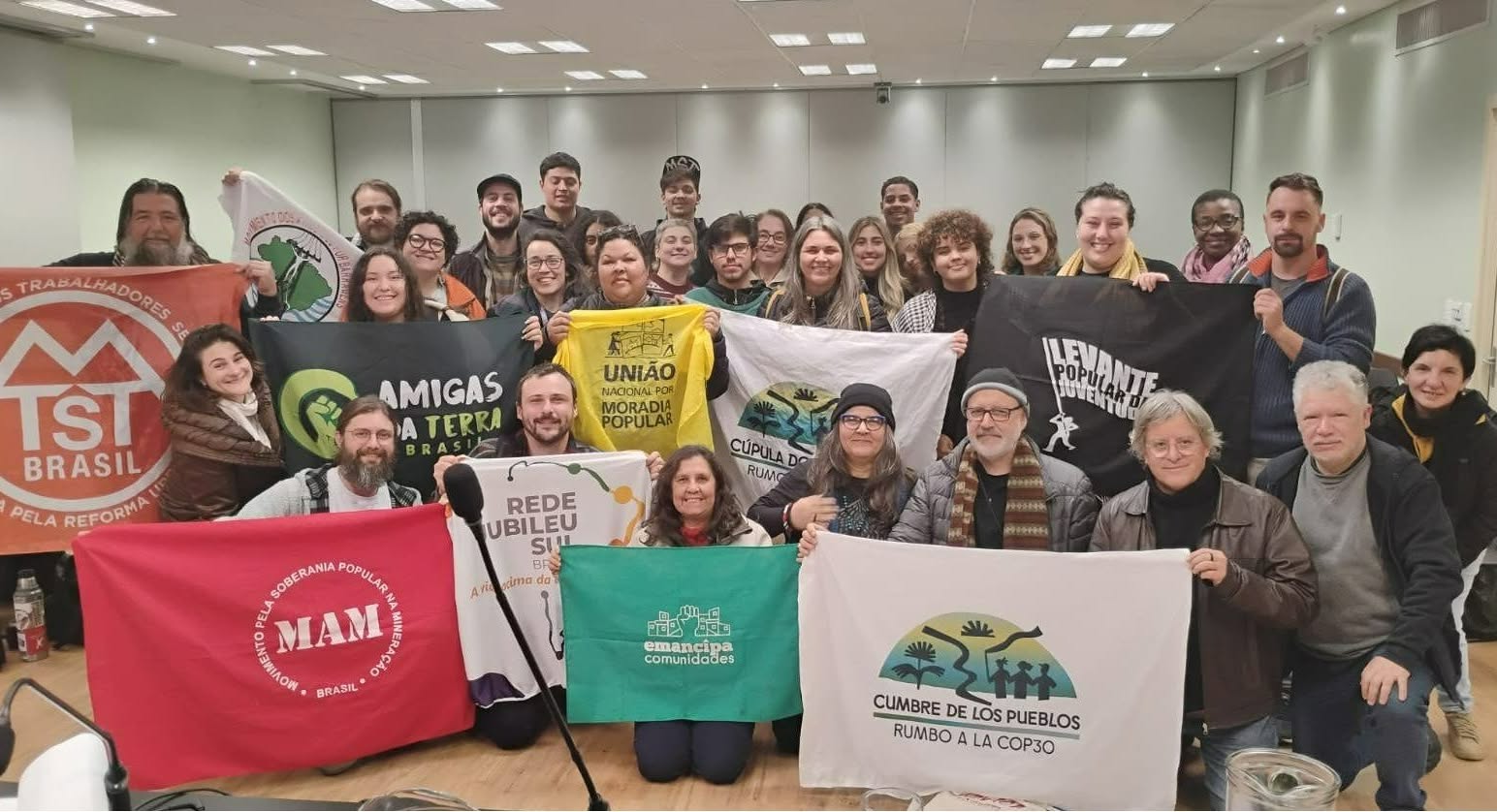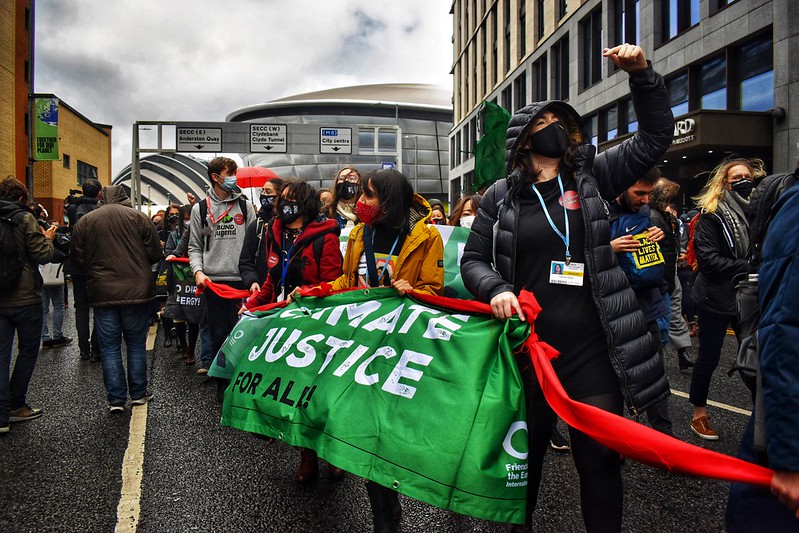Anti-Imperialist Meeting in Havana: Inside the venue and outside on the streets
Voices of the Continental Day in Defense of Democracy and Against Neoliberalism
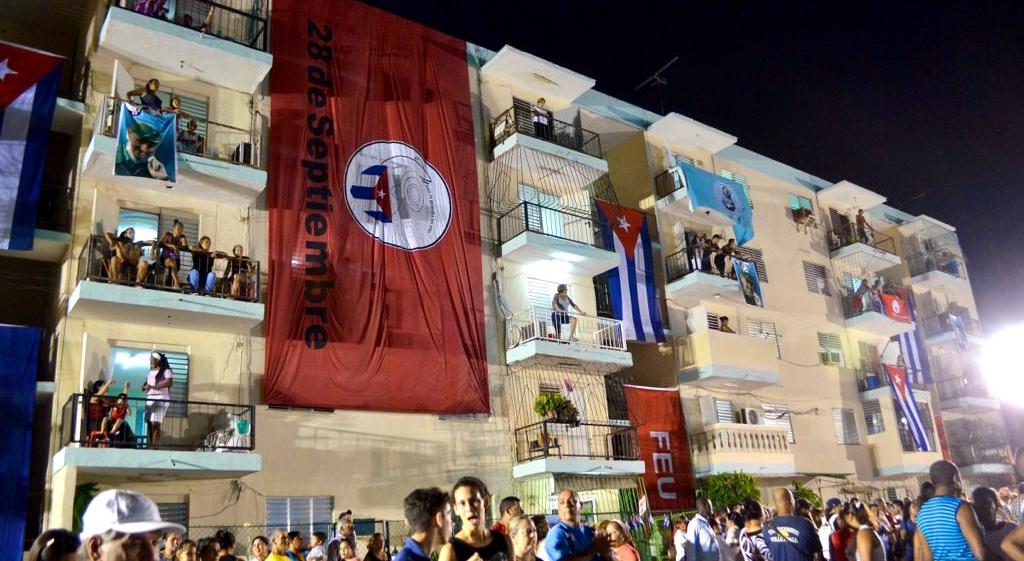
The community of Babosa neighborhood, in Havana, Cuba, welcomed on Friday night participants from the Anti-imperialist Meeting taking place in their city. Over 1500 delegates were welcomed by thousands of local people, organized in Revolution Defense Committees, for food, exchanges on different issues, and even a party.
The Anti-Imperialist Meeting of Solidarity for Democracy and Against Neoliberalism began on Friday 1 November at Palacio de Convenciones in Havana and will be held through Sunday. Participants include social organizations, political parties and movements in solidarity with Cuba, from Latin America and many other parts of the world.
The Meeting is part of a process of work and struggle of the Continental Day in Defense of Democracy and Against Neoliberalism that began in Havana in 2015 and gathers grassroots, peasant, feminist, union and environmental organizations, among others, from the Americas.
On behalf of the Continental Day, Jordania Ureña, Secretary of Social Policy and Education of the Trade Union Confederation of the Americas expressed: “We agreed to come to Havana to update our agenda, ratify our unity and continue promoting the articulation of different sectors, organizations and political movements and parties to foster an anti-capitalist and anti-imperialist agenda of mobilization and struggle, for democracy in favor of the people”.
“We don’t have any questions about the active solidarity with Cuba” against “the attacks of imperialism, intensified under Trump administration”, said Jordania. But she added: “We want to ratify that this meeting is also in solidarity with the struggle of other peoples and processes” such as in Venezuela, Bolivia, Nicaragua, Brazil, Haiti, Ecuador, Chile and Colombia.
The TUCA union leader highlighted that the challenge is to “leave Havana with a strengthened Continental Day, with more unity and the involvement of diverse sectors of our America.”
Jordania also made reference to the mobilizations taking place these past few weeks in Chile, Haiti and Ecuador, which “show that with a unified struggle it is possible to defeat the enemies of the people.” “That is why we say: not one step back, for our peoples, for our America. The struggle continues!”
Meanwhile, during the first panel of the Anti-Imperialist Meeting, feminist activist Nalú Faria, of the World March of Women, stressed that “we are experiencing a worsening of the capital vs. life conflict”. This situation is marked by “the deepening of the exploitation of nature and our territories, the exploitation of our work and precarization of our lives, and the control over our bodies, especially the bodies of women, LGTBQ people, black people, indigenous people and workers.
Nalu added that in this conflict of capital vs. life, “capital deems lives as something disposable, and this is exactly the model we are fighting and building proposals against.”
The feminist leader also referred to the need to break with “something fundamental in the capitalist society, which is the false division between production and reproduction, that aims to make the work (mainly carried out by women) invisible”. “There is no longer a division between life and work, people live to work and work to live”, said Nalu, and she explained that “life needs production and reproduction, they are not separate things, they are interconnected”. “This is fundamental when thinking about the alternative model we want to build, a model of production, reproduction and consumption.”
The feminist leader added that “there is a circular motion between struggle and life: struggle transforms life and life transforms the struggle”. “And we need to think that our struggle needs to transform our lives, it needs to build emancipatory subjects”, she said.
Moreover, peasant leader Fausto Torres, of the Latin American Coordination of Rural Organizations (CLOC-Via Campesina) told Real World Radio that the goal in Havana is “to unify the agendas of several movements and then define actions for 2020.”
Torres stressed that the peasant movement will travel to Chile to the Peoples Summit, although the UN Climate Change Conference has changed its location to Spain. In addition, he expressed solidarity with Cuba and Venezuela. He said: “Latin America is in motion: we see the people on the streets and this teaches us a great lesson, an important task to follow. It gives us an opportunity.”



